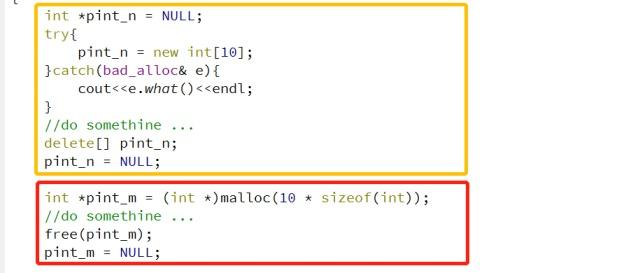#include "stdio.h"#include "stdlib.h"#define maxSize 100typedef struct{ int data[maxSize]; int top;}SqStack;typedef struct{ int data; struct Lnode *next;}LNode;int main(){ //顺序栈基本函数 void initStack(SqStack* st); int isEmpty(SqStack* st); int push(SqStack* st,int x); SqStack* pop(SqStack* st,int *x); void Output(SqStack* st,int* x); //链栈基本函数 void initLStack(LNode*lst); int isLEmpty(LNode* lst); void LPush(LNode* lst,int x); void LOutput(LNode* lst,int *x); LNode* lst; int* y; initLStack(lst); if(isLEmpty(lst) == 1) printf("栈为空\n"); else printf("栈不为空\n"); for(int i = 0;i < 5;i++){ LPush(lst,i); } if(isLEmpty(lst) == 1) printf("栈为空\n"); else printf("栈不为空\n"); LOutput(lst,y); //顺序栈测试// SqStack* st;// int* x;// initStack(st);// if(isEmpty(st) == 1)// printf("栈为空\n");// else printf("栈不为空\n");//// for(int i = 0;i < 10;i++)// push(st,i);//// if(isEmpty(st) == 1)// printf("栈为空\n");// else printf("栈不为空\n");// Output(st,x); return 0;}//链栈//链栈的初始化void initLStack(LNode*lst){ lst = (LNode*)malloc(sizeof(LNode)); lst->next = NULL;}//判断栈空的代码int isLEmpty(LNode* lst){ if(lst->next == NULL){ return 1; } else{ return 0; }}//进栈代码void LPush(LNode* lst,int x){ LNode* p; p = (LNode*)malloc(sizeof(LNode)); p->next = NULL; //头插法 p->data = x; p->next = lst->next; lst->next = p;}//出栈代码int* LPop(LNode* lst,int *x){ LNode* p; if (lst->next == NULL){ return NULL; } //单链表的删除操作 p = lst->next; x = p->data; lst->next = p->next; free(p); return x;}void LOutput(LNode* lst,int *x){ printf("输出栈内元素:\n"); while (1){ printf("%d ",LPop(lst,x)); if (lst->next == NULL){ break; } } printf("\n");}//顺序栈//初始化栈void initStack(SqStack* st){ st->top = -1;}//判断栈空代码int isEmpty(SqStack* st){ if(st->top == -1){ return 1; } return 0;}//进栈代码int push(SqStack* st,int x){ if(st->top == maxSize - 1){ return 0; } ++(st->top); st->data[st->top] = x; return 1;}//出栈代码SqStack* pop(SqStack* st,int *x){ if(st->top == -1){ return NULL; } x = st->data[st->top]; --(st->top); return x;}//打印栈内元素void Output(SqStack* st,int* x){ printf("输出栈内元素:\n"); for(int i = 0;i < maxSize;i++){ printf("%d ",pop(st,x)); if (st->top == -1){ break; } } printf("\n");}



































还没有评论,来说两句吧...